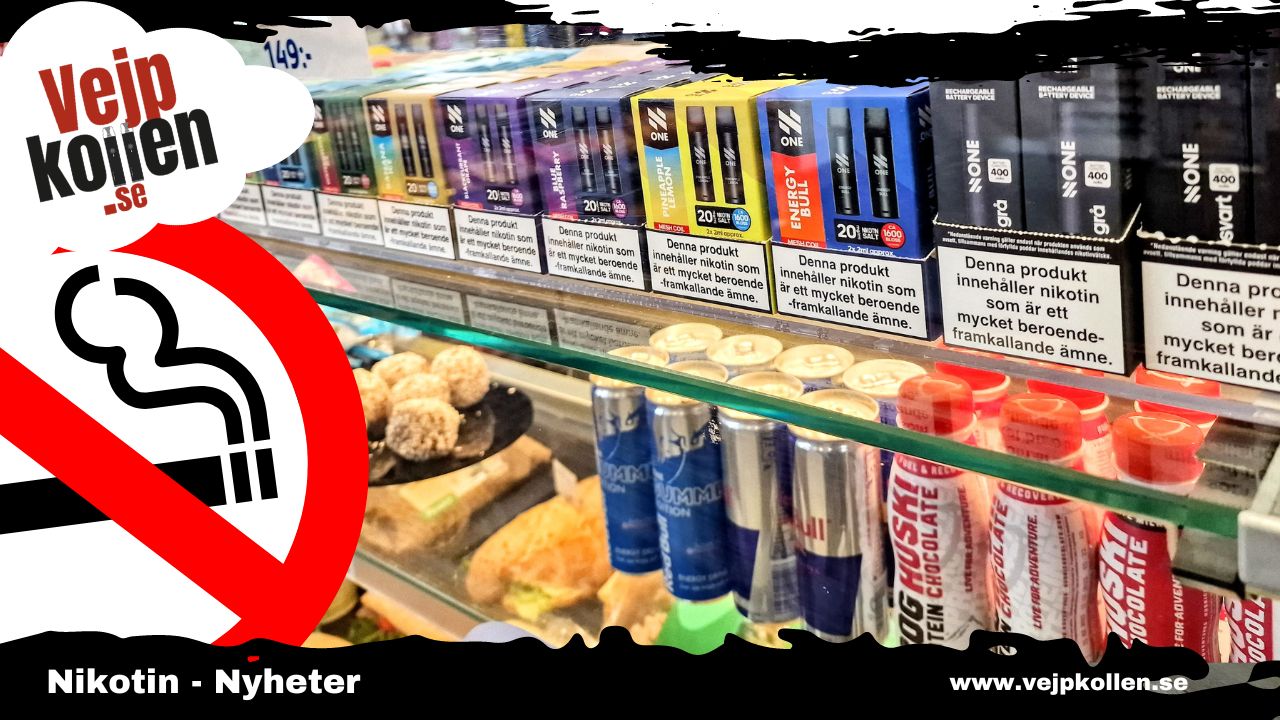More and more vejp users are using the maximum nicotine level allowed. This is according to a new UK study that has been tracking the trend since 2016. The increase has been particularly strong among young adults, those who have recently quit smoking and among groups that frequently use disposable models.
"Taking vejpa with higher nicotine strengths is likely to be more effective in smoking cessation as it will be easier to keep the craving for cigarettes away" says Sarah Jackson, researcher at University Collage London
The study used data from the UK Smoking Toolkit Study and analysed responses from a total of 7500 participants. The data spanned from 2016 to 2024.
"We see the big change in nicotine strengths from 2021 - the same year that the disposable models became popular" says Sarah Jackson in a press release from University Collage London.
High nicotine strengths play important role
The new UK government, has plans to tax e-liquid under the same model as in Sweden - where the tax increases in line with the nicotine strength. According to Ms Jackson, a higher tax on highly concentrated nicotine is a measure that could backfire.
"Nicotine is addictive, but it is not the substance that causes the diseases we associate with smoking. If the price goes up, and the availability of high nicotine levels goes down, we make an effective smoking cessation tool less attractive to smokers. Of smokers who had quit smoking in the last year, 40% used the strongest nicotine content" says Sara Jackson.
Weather pairs more and warmer
The researchers also point out that increasing the price of higher nicotine levels is likely to lead vejp users to compensate, by simply vejping more often and more.
Previous studies have shown that more experienced vejpers have "learnt" to control nicotine intake by adjusting the power in their vejpdonors. In this way, the dose increases due to the formation of more vapour. At the same time, the concentration of potentially harmful substances increases as they heat up. This is something that seems to have escaped the attention of regulators, according to Sharon Cox, behavioural scientist and addiction researcher at University College London.
"Taxing products by nicotine strength may also lead people to use a lower, cheaper nicotine strength and thus in practice vejpar more and hotter. A person with nicotine dependence is likely to change their behaviour to get the necessary nicotine dose they need. Then the amount of liquid they use to vejpa will increase instead" says Sharon Cox which points out that vejping is, after all, significantly less harmful than smoking in all situations - regardless of whether the effect increases.
Banning single-use models makes no sense
As it stands now, the UK will ban sales of disposable models already next year. However, according to the researchers behind the study, this particular measure will not affect the availability of highly concentrated nicotine.
"Manufacturers have already introduced reusable models that are similar in design and price to the disposable models and have similar nicotine strength," the researchers say in their press release.




